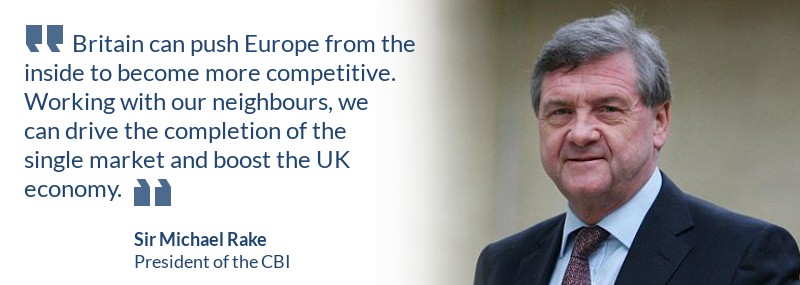The EU has the potential to be even better for business than it is now. It needs to complete the Single Market, sign new free trade deals, get rid of unnecessary regulation and create a Capital Markets Union. With reformist politicians in place all over Europe, the prospects for this agenda are excellent. Britain needs to engage to ensure that it is delivered.
EU membership helps Britain trade with the rest of the world.
(Click on infographic to enlarge)
The Single Market is the EU’s greatest achievement, but it could be better still. Updating the Single Market for the digital age, and completing it in services and energy, could boost the UK economy by £110 billion a year. The EU is also working to create a single European capital market, which could be transformative for the City of London.
The EU must sign global free trade agreements. Britain benefits from the EU’s heft in free trade negotiations. But it must use that heft. The TTIP with the United States could be worth £10 billion to our economy; an EU-Japan free trade agreement £13 billion; and an agreement with India £300 million.
Brussels must regulate more effectively. By collapsing 28 national regulations into one European regulation, EU legislation is normally beneficial for business. But some red tape is clumsy and unnecessary. By dramatically cutting its legislative output and embracing the REFIT principles, the EU is changing for the better.
Engagement, not special pleading, will deliver reform. The new European Commission is committed to this agenda, and politicians like Frans Timmermans and Jonathan Hill are determined to make the EU better for business. National politicians, like Matteo Renzi of Italy, have the same ambition. Engaging with our allies to make the EU better is the most effective way of achieving reform.



